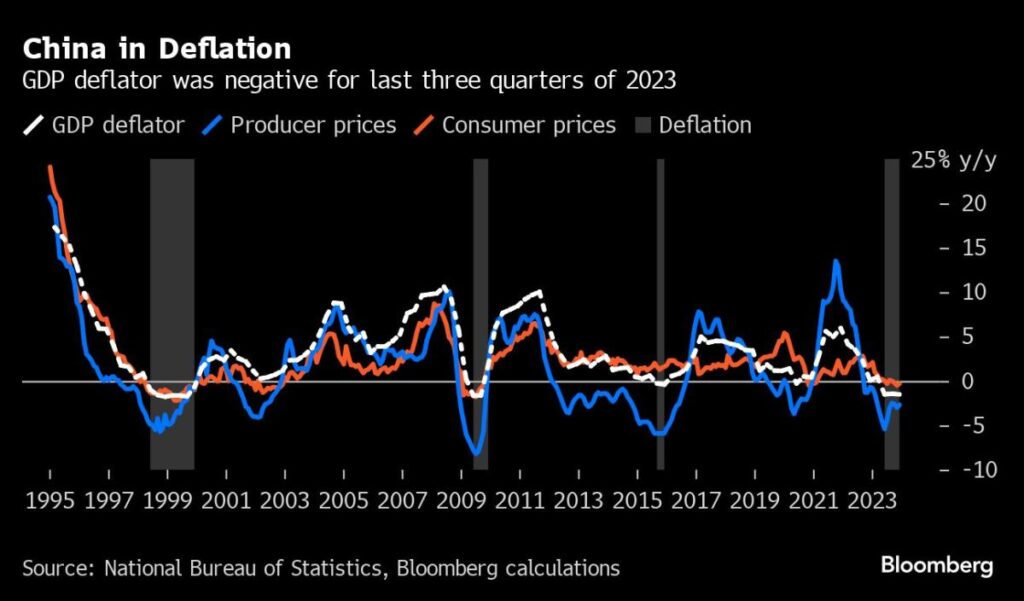China Braces for Deepest Deflation Since 2009 as Consumer Prices Plunge
Analysts were expecting prices to fall by 0.5% compared to last year and to go up by 0.4% compared to December

China faces a serious problem with prices dropping, known as deflation. In January, prices went down by 0.8% compared to the previous year, the biggest drop since September 2009. This means things are getting cheaper, which might sound good, but it’s actually a sign of trouble for the economy.
Analysts were expecting prices to fall by 0.5% compared to last year and to go up by 0.4% compared to December. So, the actual numbers were worse than what experts predicted. This shows that the economy is facing even bigger challenges than people thought.

The Chinese government had set a goal for the economy to grow by about 5% in 2023, and it met that target. However, the recovery hasn’t been as strong as hoped. There are many problems like factories not producing as much, a slowdown in the housing market, and not enough demand for Chinese products from other countries. All these issues make it harder for the economy to get back on track.
To try to help the economy, the central bank in China made a big move in late January. They cut the amount of money that banks have to keep in reserve, which means banks can lend out more money to people and businesses. This move shows that the government is trying hard to support the economy, but it might not be enough.
The prices of things like food and energy, which can change a lot, went up by 0.4% compared to last year. This is less than the increase in December, showing that prices are not going up as fast as before. Inflation, which is when prices go up overall, has been lower than what the government wanted for the past 12 years.
Economists from Citigroup, a big bank, think that prices might go up a bit more in 2024, with inflation reaching 1.2% compared to the previous year. This could happen if people start feeling more confident about spending money, which would help businesses.
Another important measure is the Producer Price Index (PPI), which shows how much factories are charging for their goods. In January, this index went down by 2.5% compared to last year. When factories have to lower their prices, it can hurt their profits and make it harder for them to stay in business. This is especially tough for smaller factories that rely on selling things overseas.
You might also be interested in –China experiences a population decline of 2.08 million, birth rate reaches an unprecedented low



